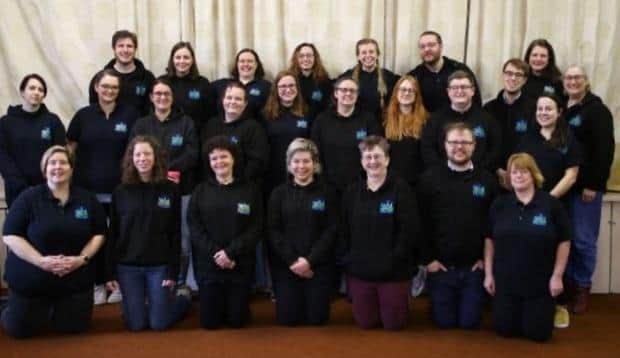Centenary Project making a difference in Sheffield and South Yorkshire’s deprived communities
and live on Freeview channel 276
Emerging from the pandemic, young people’s mental health has been disproportionately affected and a generation of children and young people are at risk of being left behind.
But new findings from the Church Army Research Unit suggests that the Diocese of Sheffield’s Centenary Project is making a positive impact on some of South Yorkshire’s most deprived communities.
Advertisement
Hide AdAdvertisement
Hide AdThe Centenary Project was set up in 2015 to resource churches to engage with children, young people and families in deprived parts of the Diocese of Sheffield.


Throughout 2021, the Church Army Research Unit was commissioned to undertake an independent evaluation of the Centenary Project to assess its impact. The recently published report indicates ‘the Centenary Project is making a difference in the lives of children, young people and families’.
The Centenary Project provides workers to support churches in reaching children, young people and families.
According to the report, of the 54 parishes who have or have had a project worker, 35 are within the 20 per cent most deprived in England and 16 of these parishes (30%) are among the five per cent most deprived in the country.
Advertisement
Hide AdAdvertisement
Hide AdThe evaluation report includes six case studies, five of which illustrate the project’s impact.
Interviews revealed comments about the economic challenges experienced by children, young people and families in the communities in which they work.
The Centenary Project – which was named to mark the diocese’s 100th birthday – looks to address these challenges through establishing programmes of activities including parent and toddler groups, school uniform banks, after-school clubs and youth groups.
Throughout the pandemic, project workers have provided online activities, delivering resources and when restrictions allowed holding outdoor activities.
Advertisement
Hide AdAdvertisement
Hide AdParticipants in Centenary Project groups were surveyed and questions about the impact all received high scores. Statements about feeling ‘accepted’, ‘supported’, ‘belonging’ and ‘understood’ scored particularly strongly. The research uncovered many stories and examples that illustrate the Centenary Project’s impact on children, young people and families’ wider wellbeing.
Centenary Project Manager, Helen Cockayne said: “Our aim has always been to make a difference to the lives of children, young people and families – we are delighted that this report demonstrates that we are achieving this.
"The outcomes of this report will be vital to the future of the Centenary Project as we continue to grow this work to have an ongoing impact.”
Project workers have been placed in parishes across the diocese including St Mary’s on Bramall Lane, St Peter’s in Bentley, St James’, Woodhouse and St Lawrence’s Church in Hatfield.
Advertisement
Hide AdAdvertisement
Hide AdBishop of Sheffield, Rt Rev Dr Pete Wilcox said: “The Centenary Project has been wonderfully fruitful in the first six years of its life, and it remains a vital part of the diocesan strategy.
“I am grateful to Church Army’s Research Unit for the report, and the research behind it, for providing a rigorous assessment of the Centenary Project and for the helpful suggestions that it makes for the project’s continued growth, success and impact.”
More information about the Centenary Project can be found at www.centenaryproject.org.uk